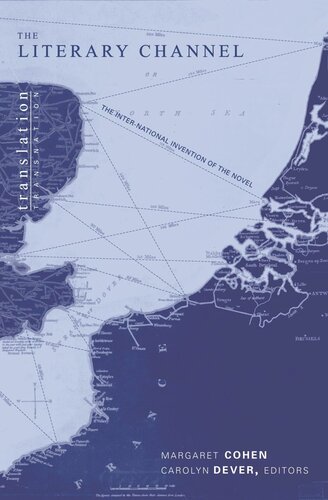

Most ebook files are in PDF format, so you can easily read them using various software such as Foxit Reader or directly on the Google Chrome browser.
Some ebook files are released by publishers in other formats such as .awz, .mobi, .epub, .fb2, etc. You may need to install specific software to read these formats on mobile/PC, such as Calibre.
Please read the tutorial at this link: https://ebookbell.com/faq
We offer FREE conversion to the popular formats you request; however, this may take some time. Therefore, right after payment, please email us, and we will try to provide the service as quickly as possible.
For some exceptional file formats or broken links (if any), please refrain from opening any disputes. Instead, email us first, and we will try to assist within a maximum of 6 hours.
EbookBell Team

4.0
86 reviewsThe Literary Channel defines a crucial transnational literary "zone" that shaped the development of the modern novel. During the first two centuries of the genre's history, Britain and France were locked in political, economic, and military struggle. The period also saw British and French writers, critics, and readers enthusiastically exchanging works, codes, and theories of the novel. Building on both nationally based literary history and comparatist work on poetics, this book rethinks the genre's evolution as marking the power and limits of modern cultural nationalism.
In the Channel zone, the novel developed through interactions among texts, readers, writers, and translators that inextricably linked national literary cultures. It served as a forum to promote and critique nationalist clichés, whether from the standpoint of Enlightenment cosmopolitanism, the insurgent nationalism of colonized spaces, or the non-nationalized culture of consumption. In the process, the Channel zone promoted codes that became the genre's hallmarks, including the sentimental poetics that would shape fiction through the nineteenth century.
Uniting leading critics who bridge literary history and theory, The Literary Channel will appeal to all readers attentive to the future of literary studies, as well as those interested in the novel's development, British and French cultural history, and extra-national patterns of cultural exchange. Contributors include April Alliston, Emily Apter, Margaret Cohen, Joan DeJean, Carolyn Dever, Lynn Festa, Françoise Lionnet, Deidre Shauna Lynch, Sharon Marcus, Richard Maxwell, and Mary Helen McMurran.